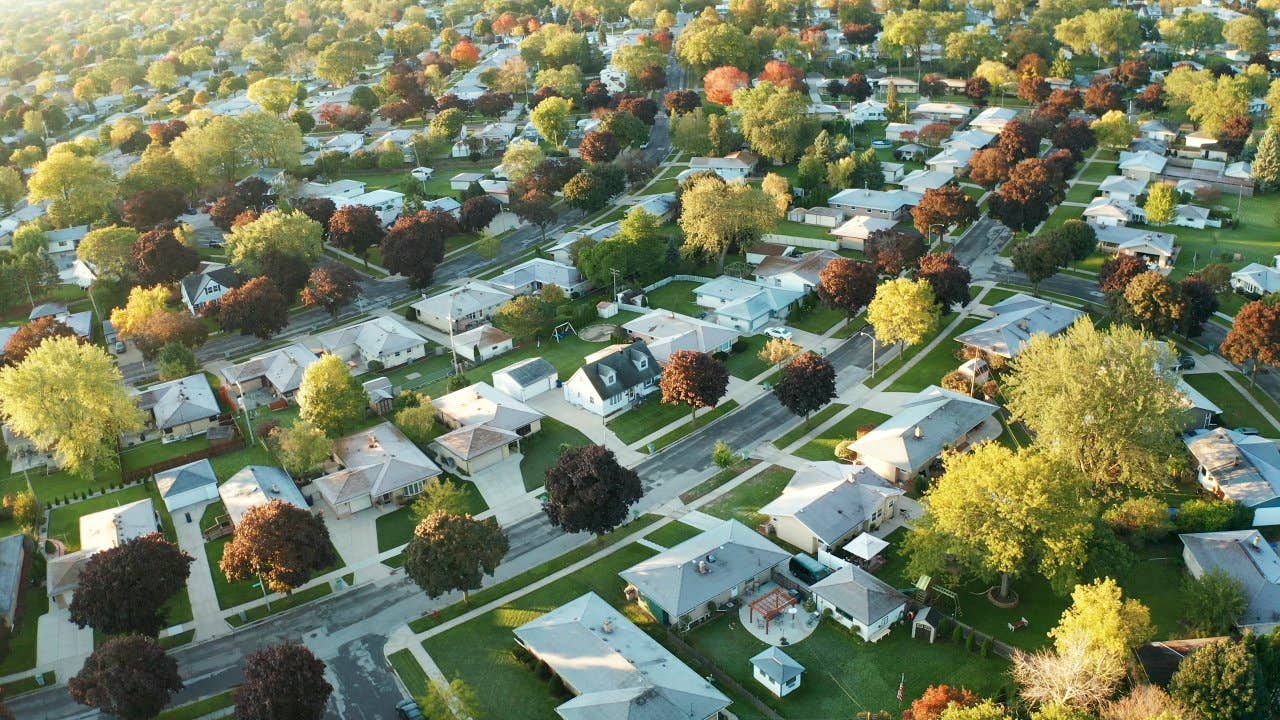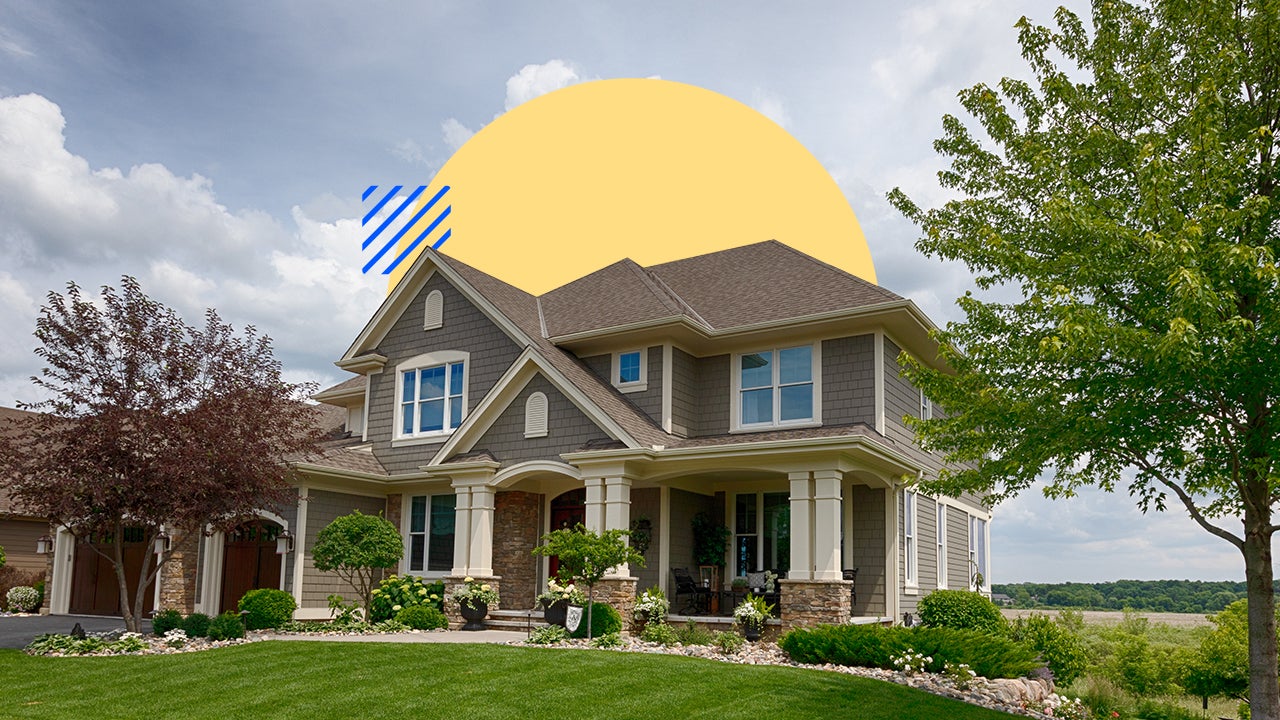How much house can I afford if I make $100,000 a year?

Key takeaways
- Based on the 28/36 rule, you should aim to spend a maximum of $2,333 per month on your housing costs if you earn $100,000 each year.
- If you’re trying to budget for buying a home on a $100,000 salary, pay close attention to how much of your earnings are going to other debt like your auto loan, student loans and credit card payments.
- While a $100,000 annual salary won’t be enough to afford a home in areas like San Francisco, Seattle or New York, it’s enough money in many of the major metro areas in the Midwest.
If you’re earning $100,000 per year, congratulations on entering six-figure salary territory. However, if you’re an aspiring homeowner, even this princely sum may not seem like enough. Bankrate’s 2025 Housing Affordability Study found that prospective homebuyers need to earn close to $117,000 per year to be able to purchase a median-priced home in the country.
Don’t let that figure automatically get you down, though. Rather than hold out hope for a raise, there are plenty of properties below that median price tag in some parts of the country. Read on to learn about where they are, how you can get your finances ready to call one of them your own and what to consider as you determine how much house you can afford.
Start with the 28/36 rule
As a baseline for your budget, aim to follow the 28/36 rule. This commonly used guideline states that you should spend no more than 28 percent of your income on your housing expenses, and no more than 36 percent on your total debt payments. Here’s a look at how to use it for your $100,000 annual salary:
- Divide $100,000 by 12: Your gross monthly income comes out to $8,333.
- Multiply that number by 0.28: Based on that typical monthly take-home pay, you have $2,333 as a maximum to spend on your housing payments. Remember that the number represents an all-in figure — not just principal and interest — so you want to aim to include homeowners insurance, property taxes and any private mortgage insurance payments in the amount.
- Multiply your gross monthly income by 0.36: This comes out to $2,999, and the figure represents how much you should be spending on all your debts.
- Analyze all your other debts. Look at your car payment, student loans and credit card minimum payments to see how much you’re spending each month. To squeeze in under that 36 figure, you shouldn’t be spending any more than $667 on these debts.
Can I afford a $400,000 or $500,000 house?
Let’s assume you make a 20 percent down payment on a $400,000 house and take out a 30-year fixed mortgage at an interest rate of 6.5 percent.
According to Bankrate’s mortgage calculator, that would make your monthly principal and interest payments $2,022. That gives you a little bit of wiggle room to account for property taxes, insurance premiums and other monthly fees to stay under the 28 percent goal of $2,333. So yes, hypothetically you should be able to afford a $400,000 home.
However, $500,000 would be pushing it — the same loan on a house of that price would equate to $2,528 in monthly principal and interest payments, which exceeds your limit of $2,333.
How to determine how much home you can afford
Your paycheck isn’t the only thing that decides your buying power. Make sure you think about these other major factors to get a sense of how much you’ll be able to borrow to buy a house.
Your credit situation and debt-to-income ratio
Your credit score is a crucial part of your mortgage application. Low credit scores translate to higher interest rates — which will eat into your buying power. Bankrate’s mortgage calculator shows that the monthly payment on a $320,000 loan at a 7 percent interest rate is more than $200 higher than the same loan at 6 percent. So, a higher credit score will equate to a more competitive interest rate on your loan, and thus a lower monthly mortgage bill.
“Before banks or other mortgage lenders extend a loan to you, they’ll look at that overall picture of your financial life,” says Wil Hendrix-Griffin, a Chicago-based senior vice president and head of affordable lending at PNC Bank. “Lenders want to see how well you manage your current debt. Are you paying your bills on time? Are you overspending on your credit card? It’s important for lenders to see that you’re not financially overextending yourself by adding a mortgage payment to your personal finances.”
Lenders will also evaluate your overall debt-to-income ratio — the 36 in the 28/36 rule. Some lenders will allow up to a 50 percent DTI, but they will look at higher levels of outstanding debt — especially high-interest credit cards — as a signal of a higher-risk borrower.
“In addition to a credit score and income, lenders will research your employment history,” Hendrix-Griffin adds. “It’s equally important to show that you have a steady, reliable, long-term employment history. This shows the lender that there’s a high likelihood that you’ll be employed well into the future.”
Your savings
How much of that $100,000 salary have you been able to squirrel away in savings? Shifting your money into a high-yield savings account can help accelerate your savings efforts.
Savings are highly important, because the more money you can put down upfront, the less money you’ll have to borrow. If you can afford to make a sizable down payment, that lowers your loan-to-value ratio, which is the size of your borrowed sum divided by the worth of property you want to buy. Lenders prefer to see an 80/20 LTV, which requires a 20 percent down payment. So, on a $400,000 home, you would need to put down $80,000 upfront, and still have enough left over to cover your closing costs.
If you can’t make a 20 percent down payment, it’s OK. Many types of loans can be had for much less. However, this will likely mean paying for private mortgage insurance, which will add to your monthly payments.
Where it’s easier to buy a home earning $100,000 or less
According to a recent data analysis from Redfin, there are plenty of major metro areas where affordability has been improving. Here are the spots where you can afford the median-priced home with $100,000 or less in annual earnings:
- Cincinnati
- Cleveland
- Columbus, Ohio
- Detroit
- Houston
- Indianapolis
- Jacksonville, Florida
- Kansas City, Missouri
- Milwaukee
- Philadelphia
- Pittsburgh
- San Antonio
- St. Louis
- Tampa, Florida
- Virginia Beach, Virginia
- Warren, Michigan
Don’t see your city on this list? There may still be a way to become a homeowner — if you’re willing to make some sacrifices. Remember that this home purchase doesn’t have to be your forever home. If you’re simply aiming to stop renting, think about a starter home that can serve you for at least the next five years. It may not be the exact property you eventually want, but you can start building equity right away.
Know your financing options
There are loads of different financing options for buying a home, including conventional, FHA, VA and USDA loans. To get a sense of what kind of loan you can qualify for and how much you’ll be able to borrow, get preapproved for a mortgage. It’s a simple step that involves sharing your pay stubs, tax returns and other financial information with a lender. That will give you a solid idea of how much a lender is willing to loan you, which will help you set a realistic budget.
The lender that issues your preapproval doesn’t have to be the lender that actually loans you the money to buy the home. Be sure to compare multiple lenders to get a sense of where you’ll find a combination of the lowest fees and the best interest rates.
And if you’re buying your first home, there are many first-time homebuyer loans and programs that can help cover your down payment or closing costs, too. Your relatively high salary may make you ineligible for some of them, but it’s worth looking into, as several states have upped their income limits above the $100,000 mark.
Stay the course
If you crunch all the numbers and you’re still wondering whether you should buy a house now or wait, patience might prove to be a good route. Set yourself up for success by taking some time to boost your savings and improve your credit score before you dive into the market. Don’t do anything that might negatively alter your score, like open up new credit accounts or buy a new car, while you’re actively trying to raise it. And when you’re ready, make sure you have an experienced local real estate agent by your side. An agent who knows your market can help you find the right home at the right price for you.
FAQs
Why we ask for feedback Your feedback helps us improve our content and services. It takes less than a minute to complete.
Your responses are anonymous and will only be used for improving our website.







